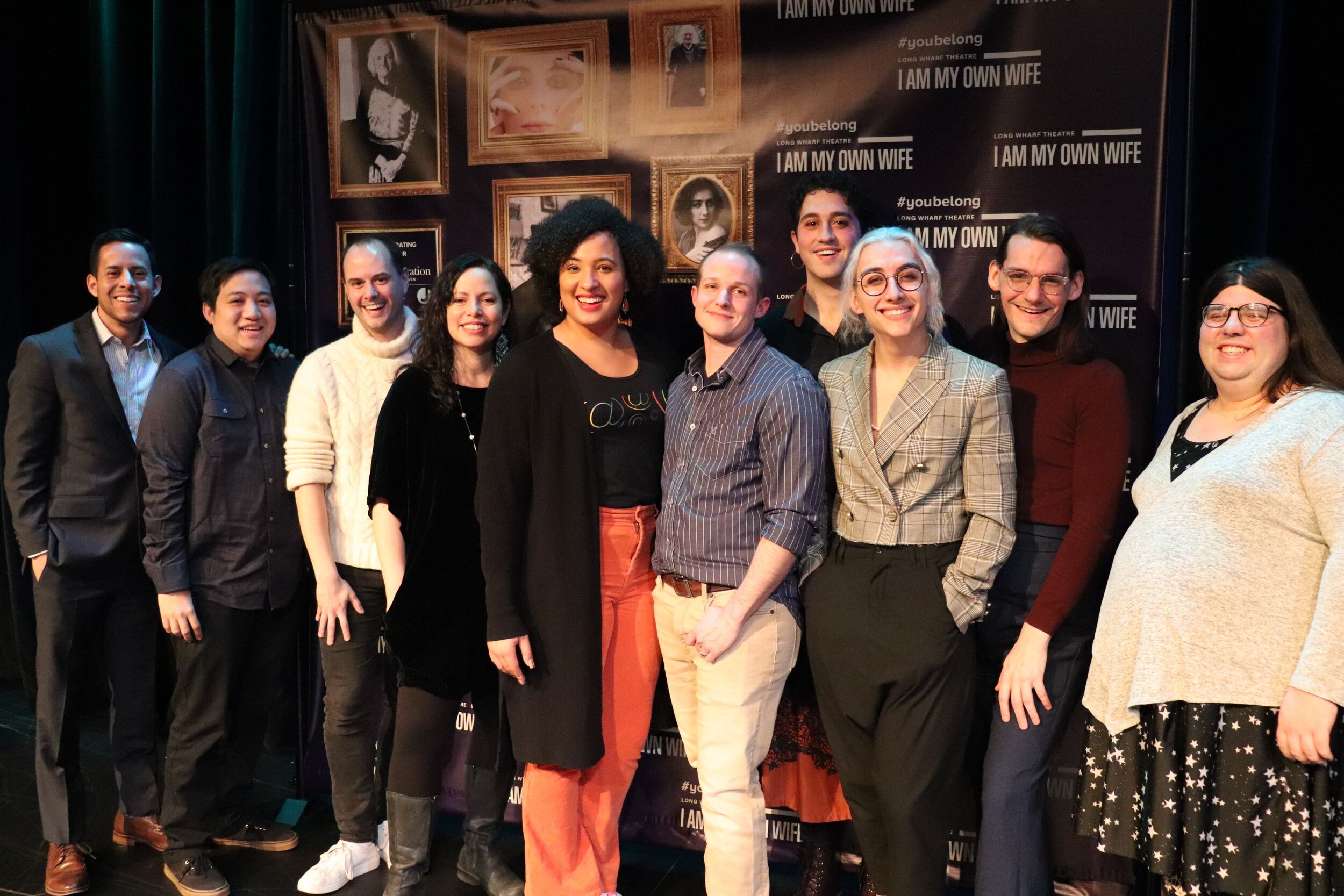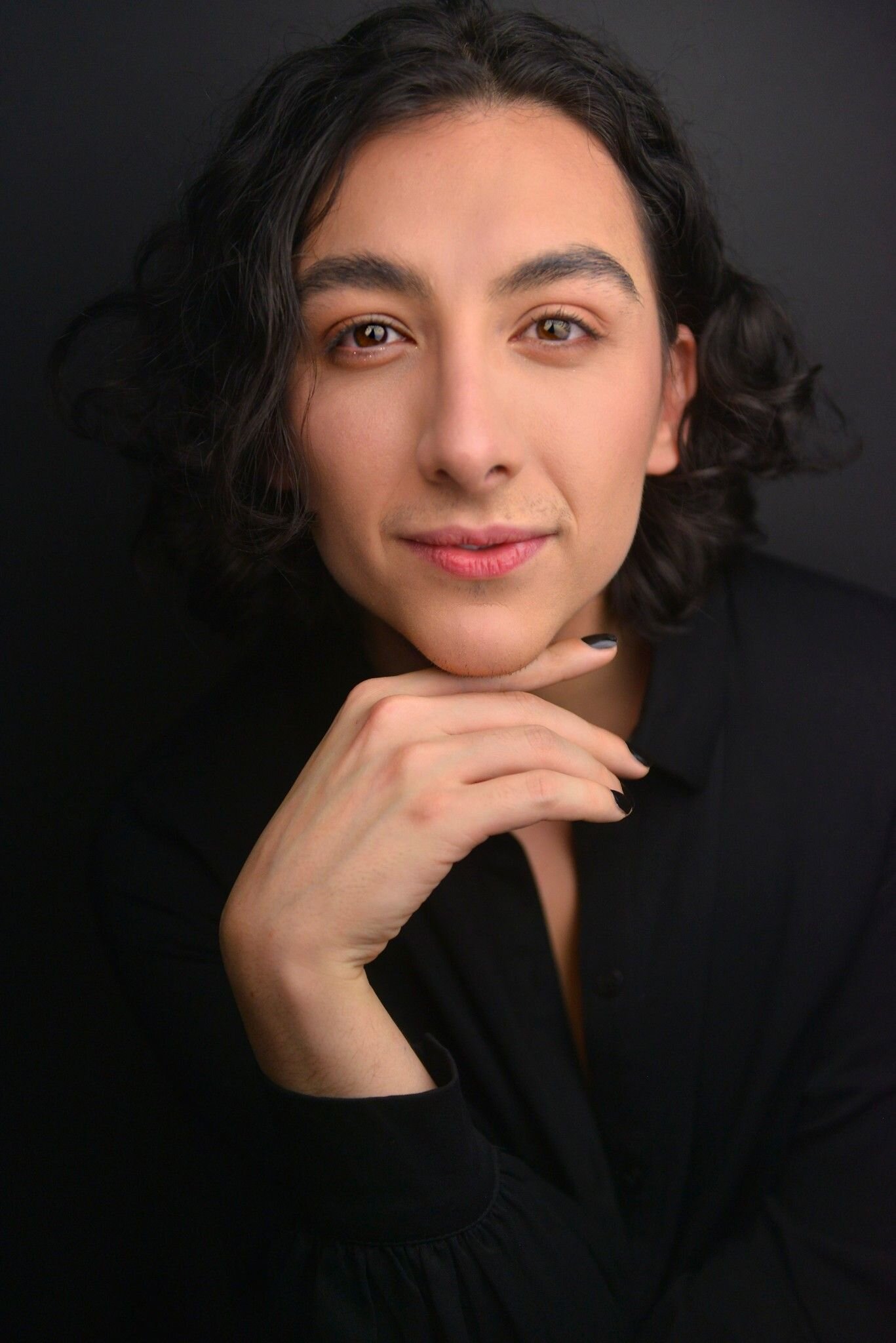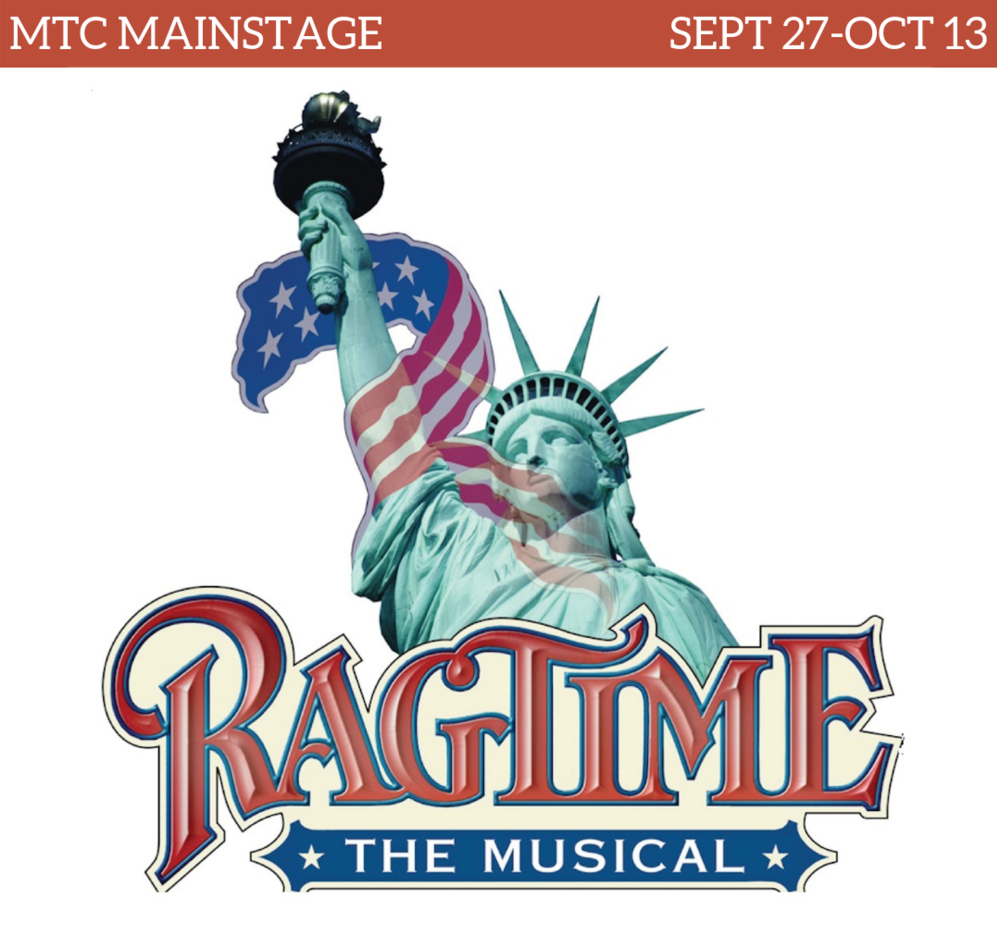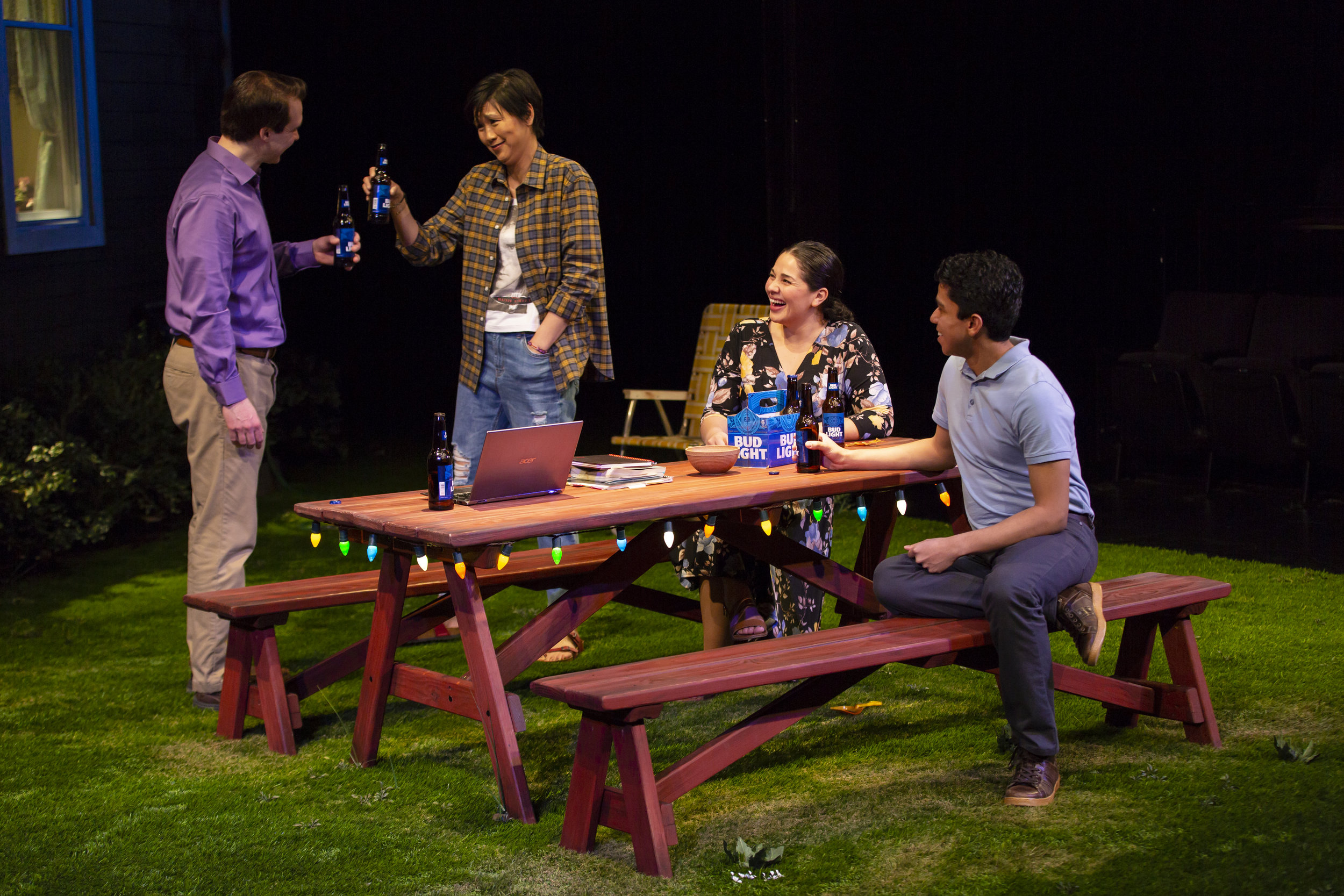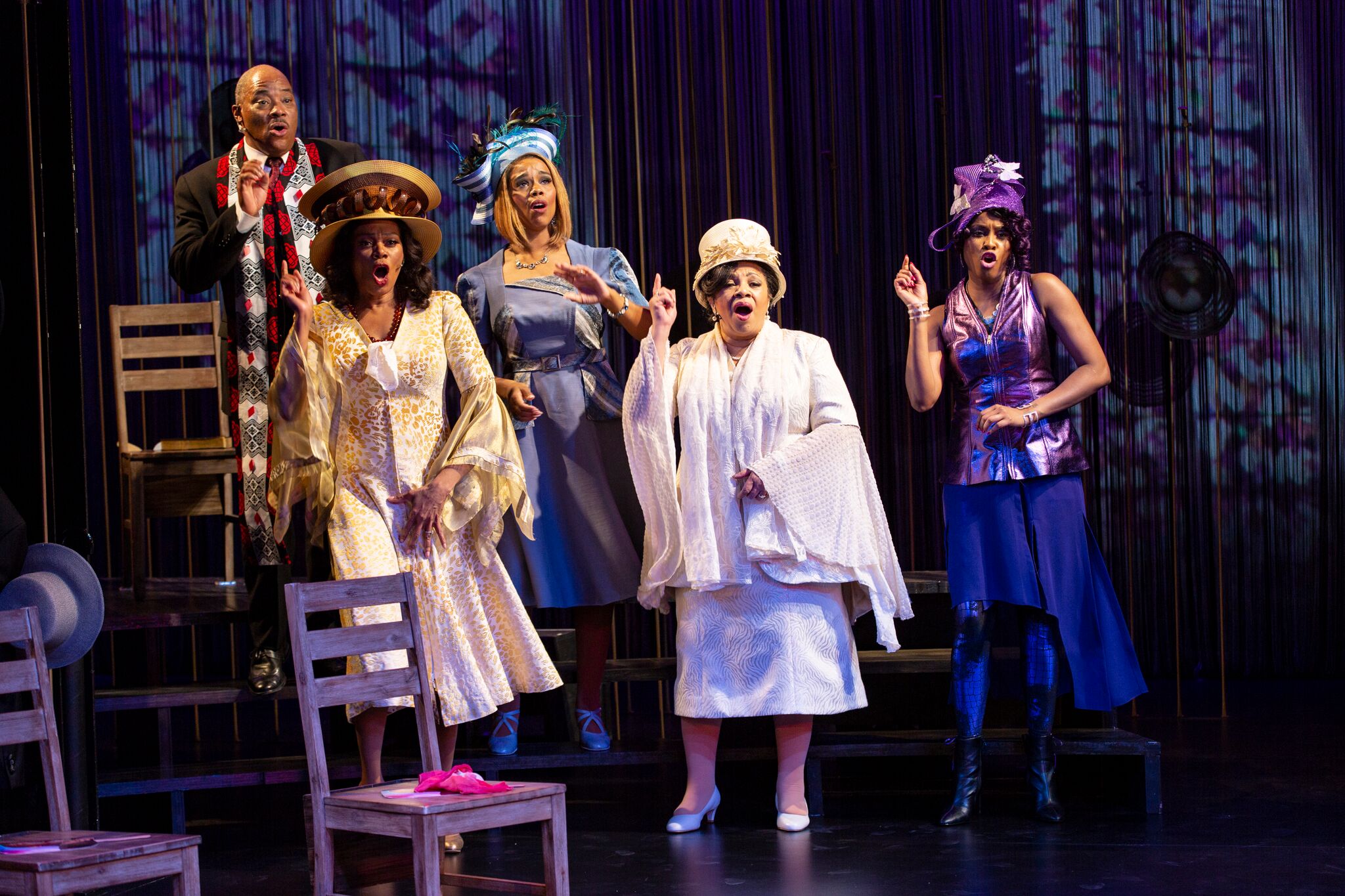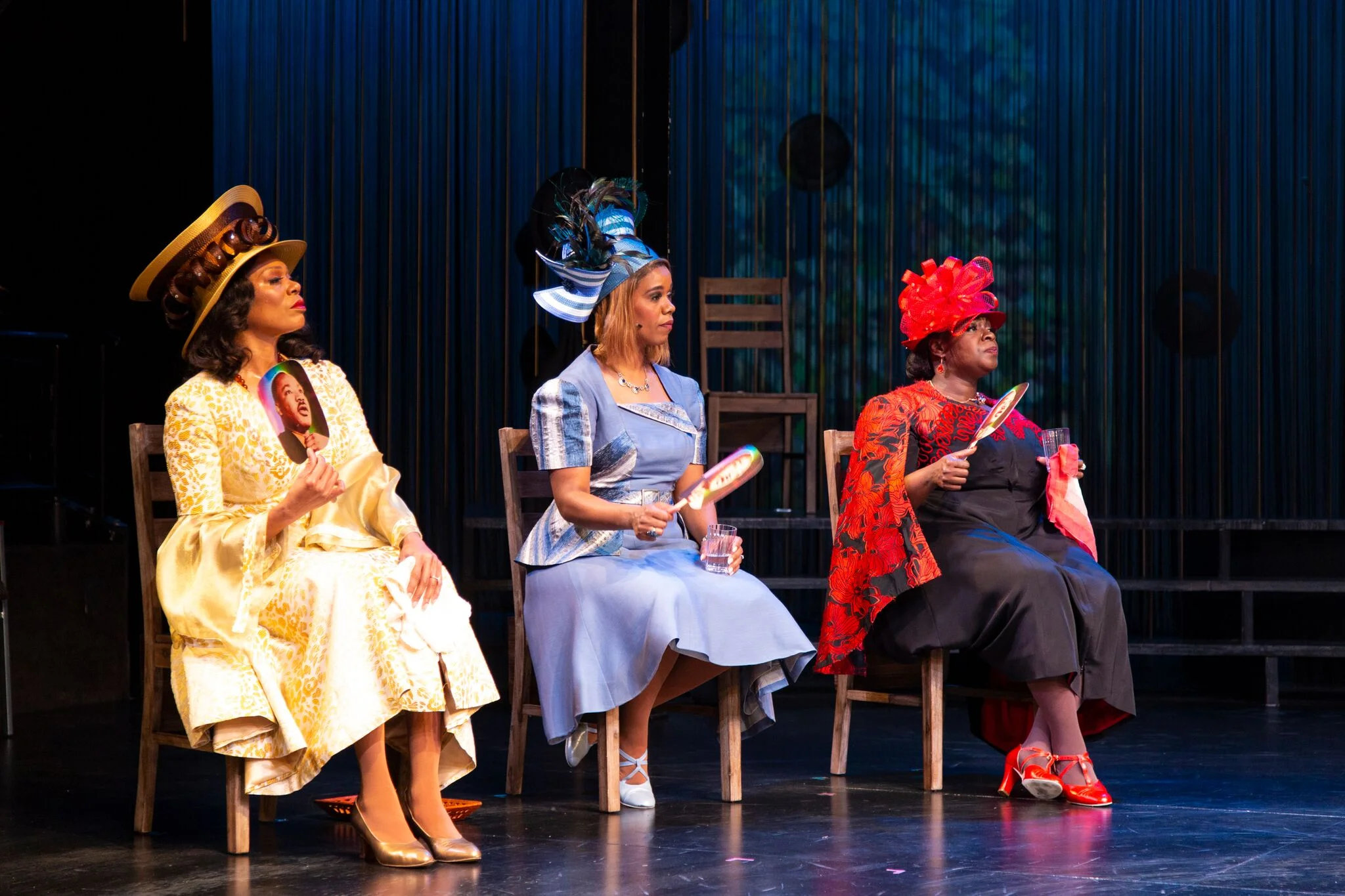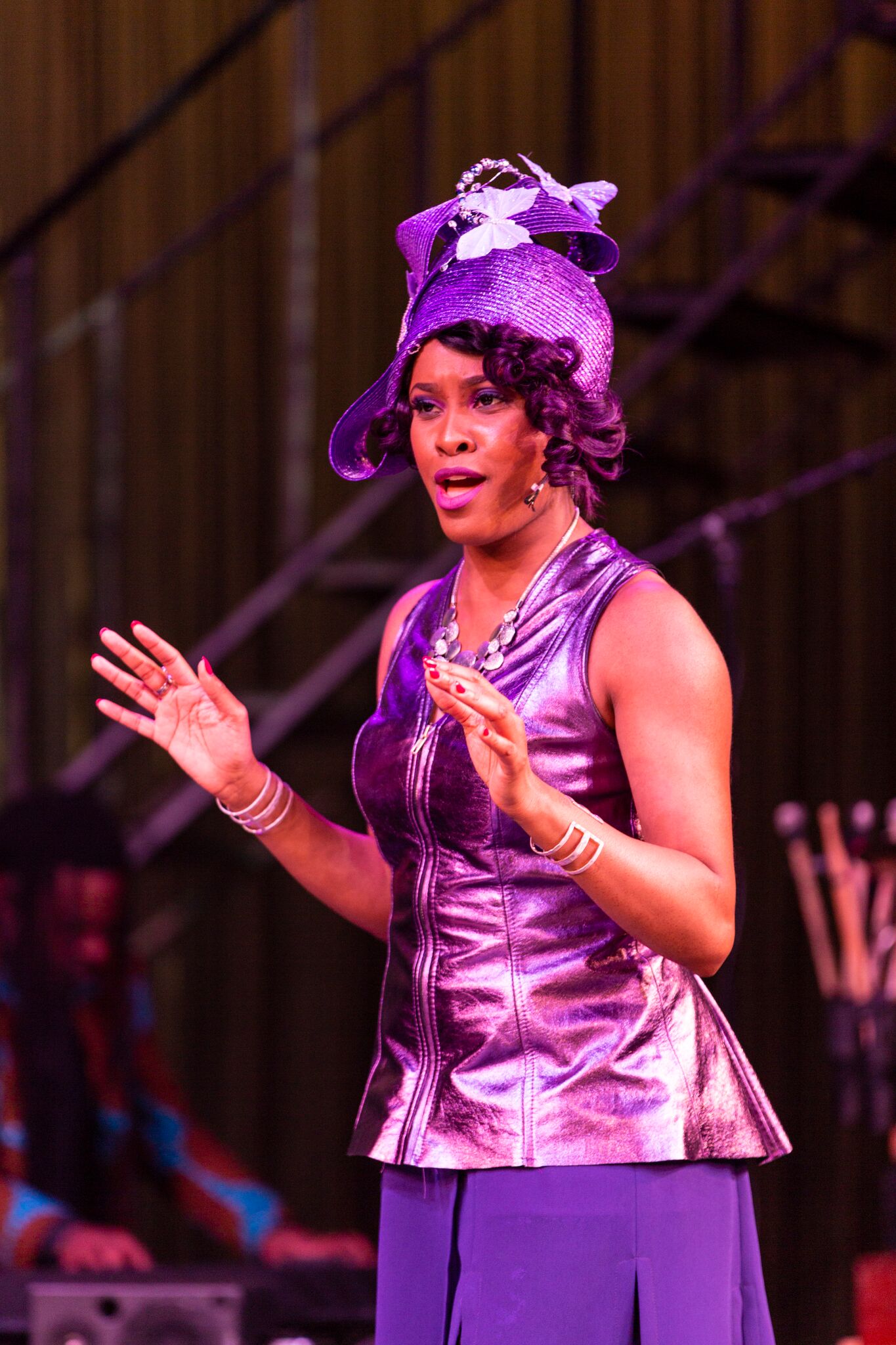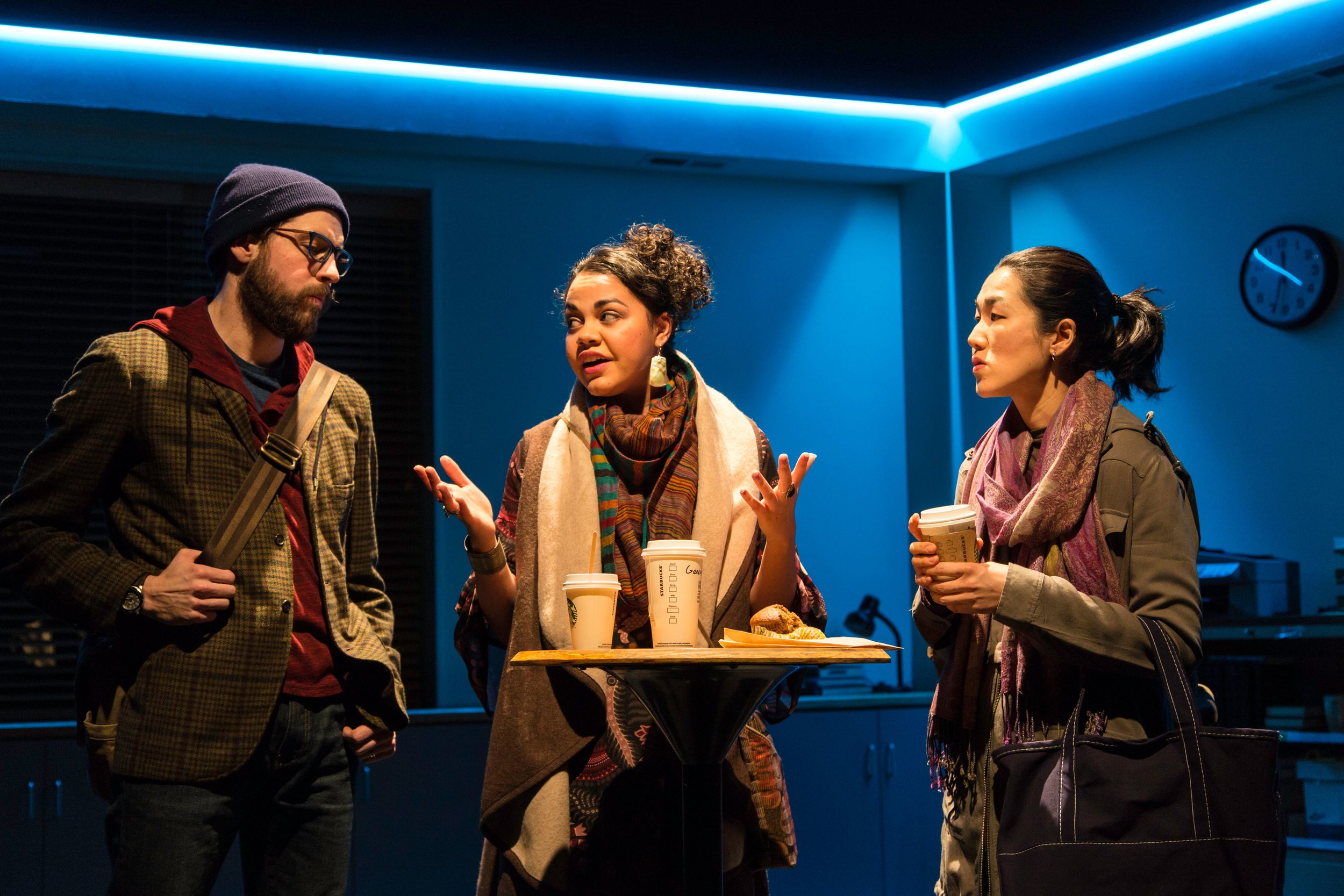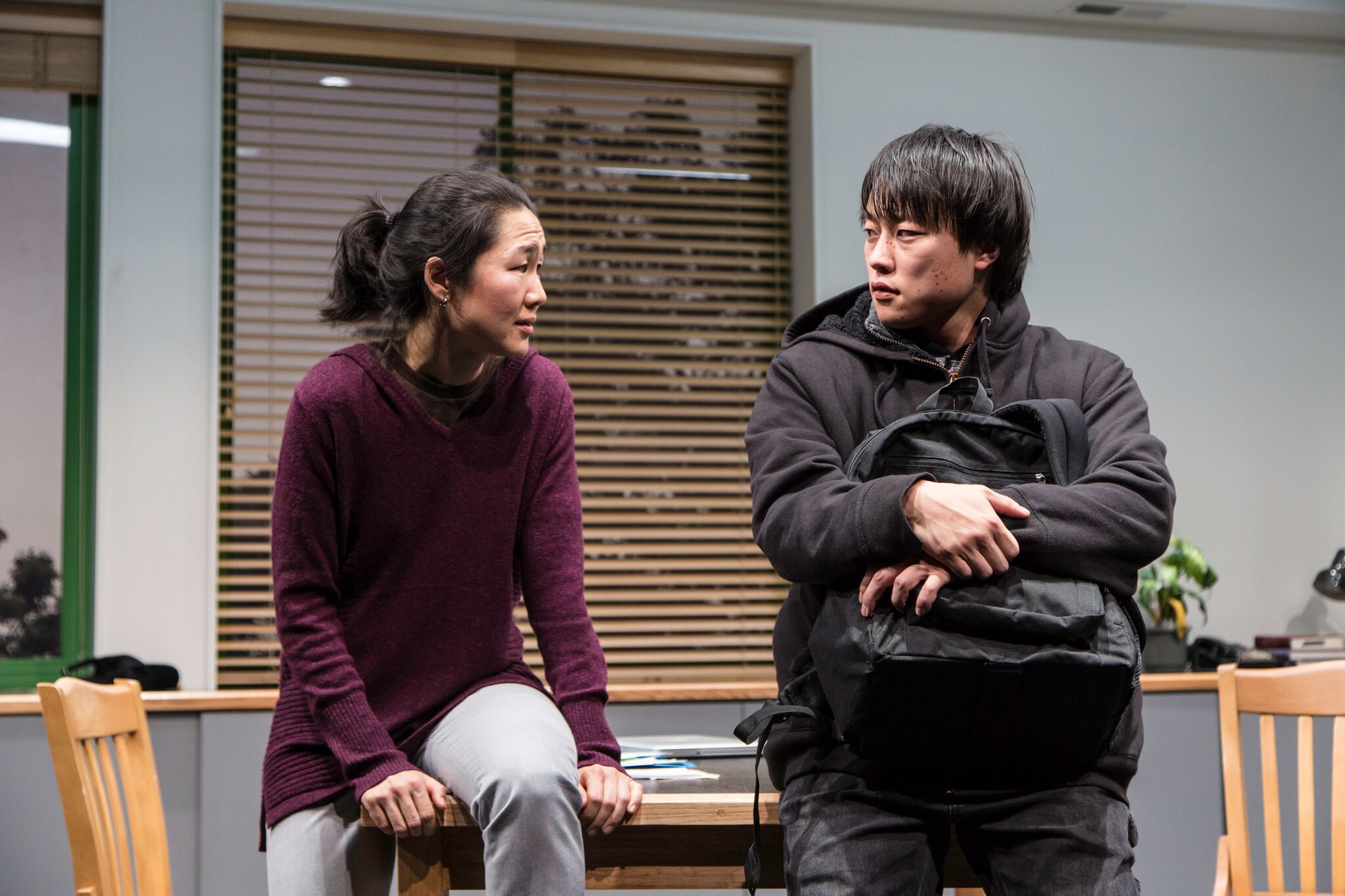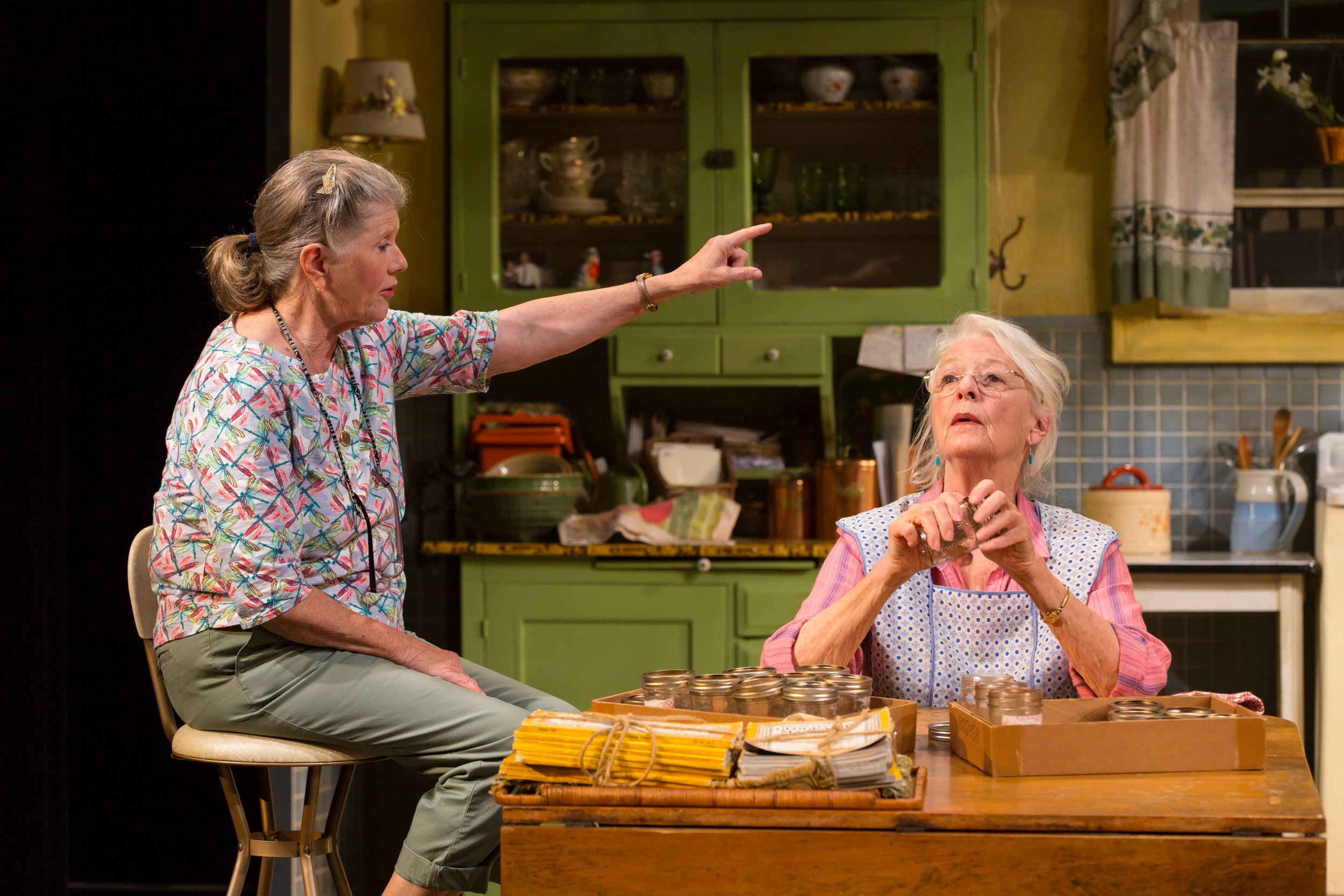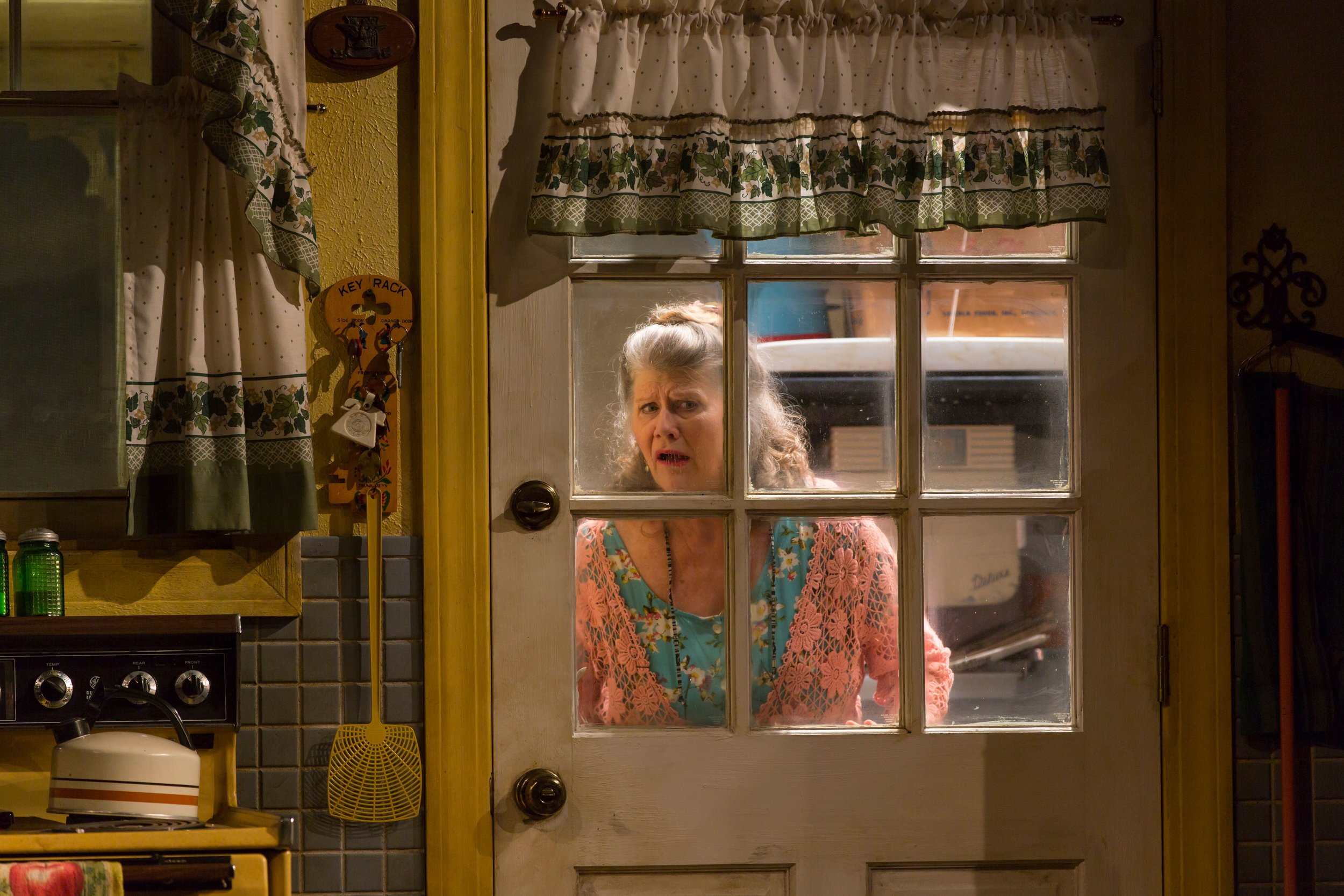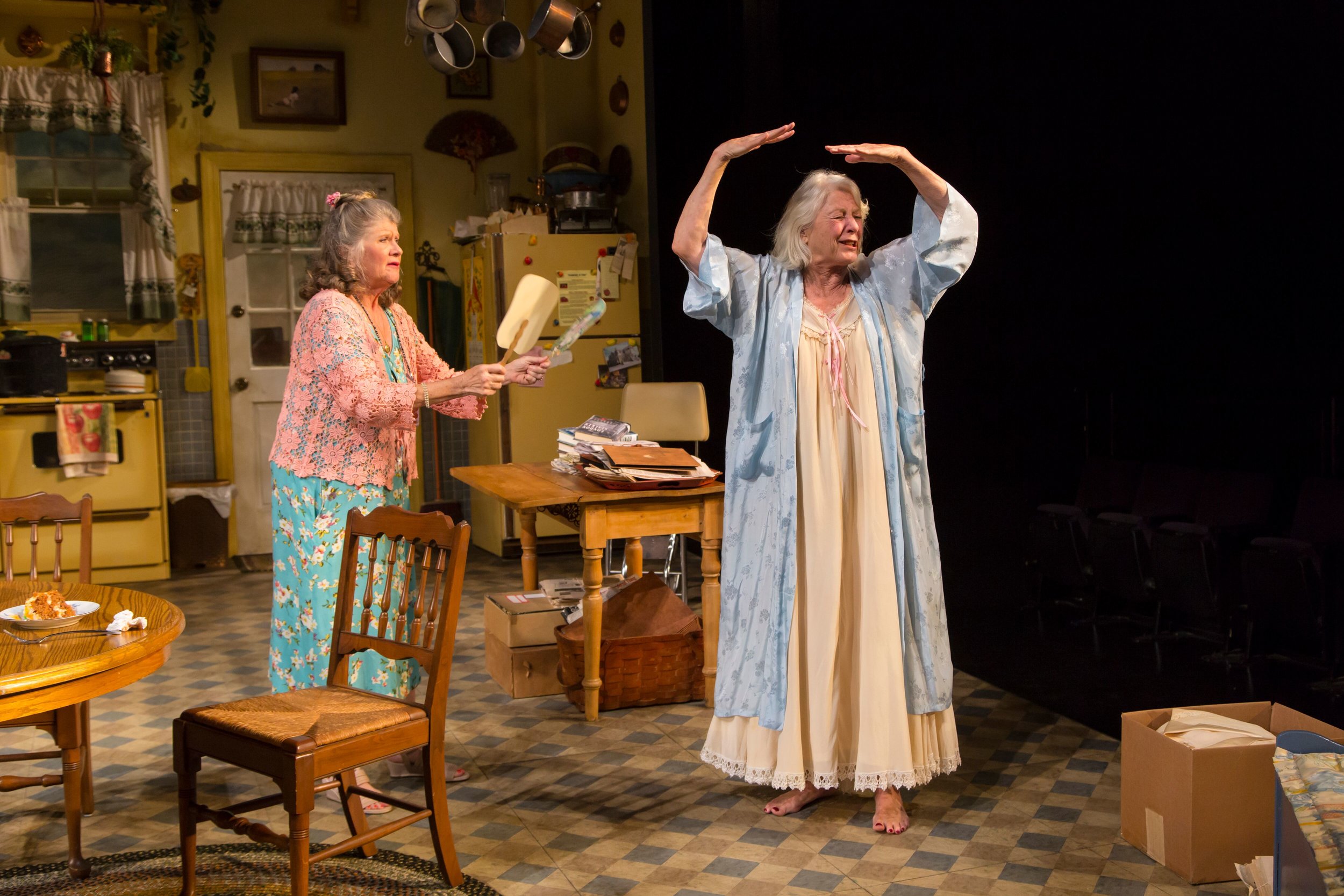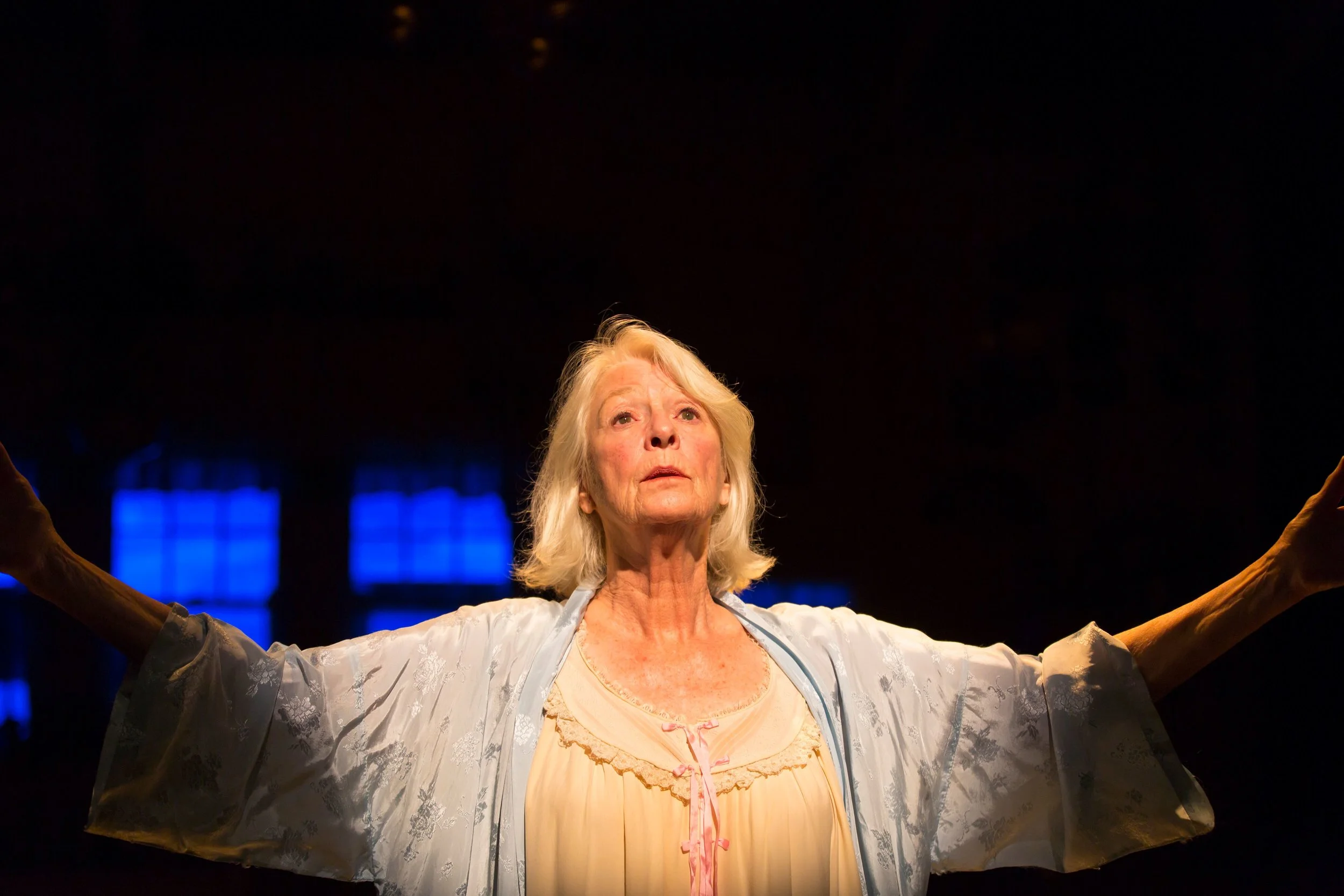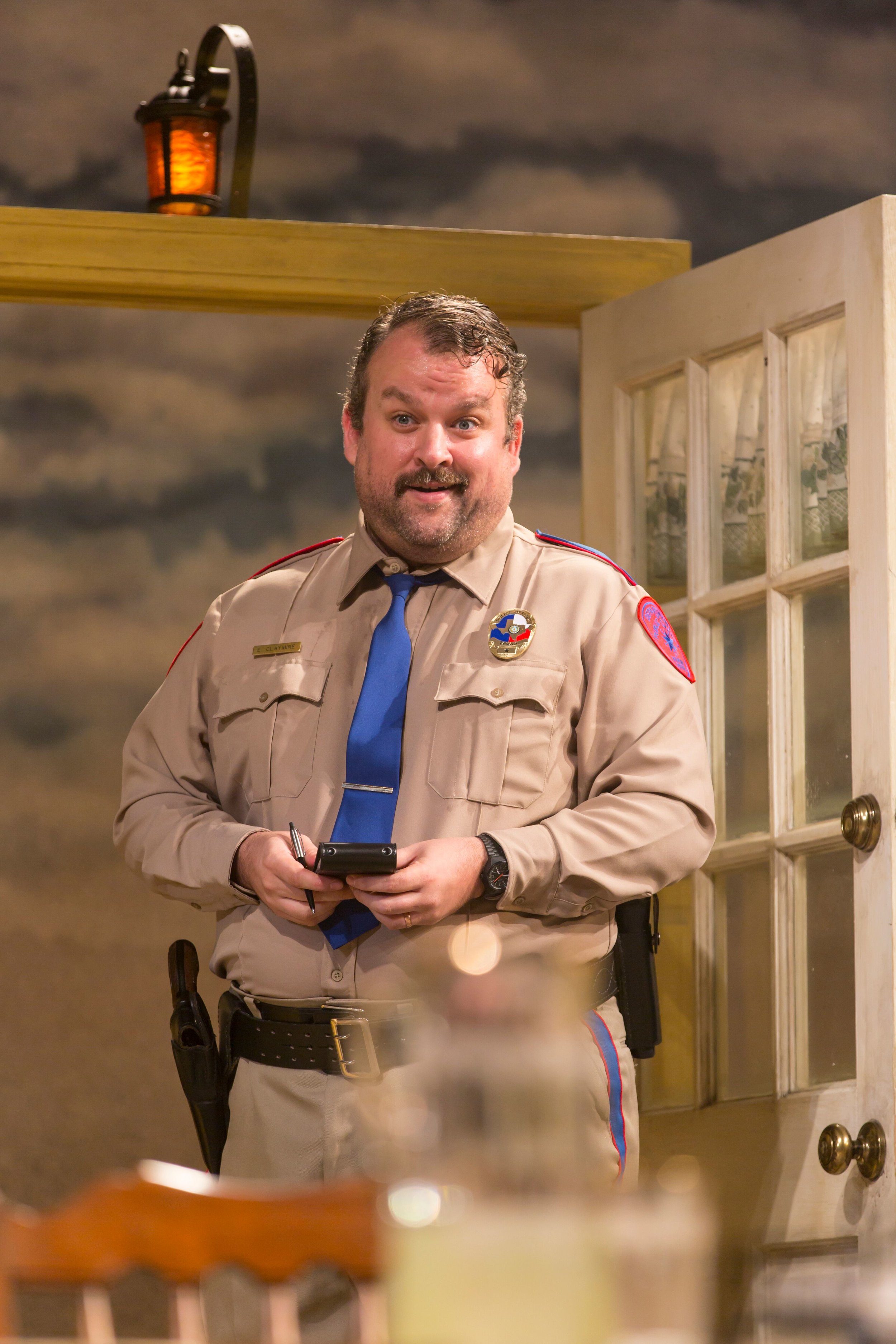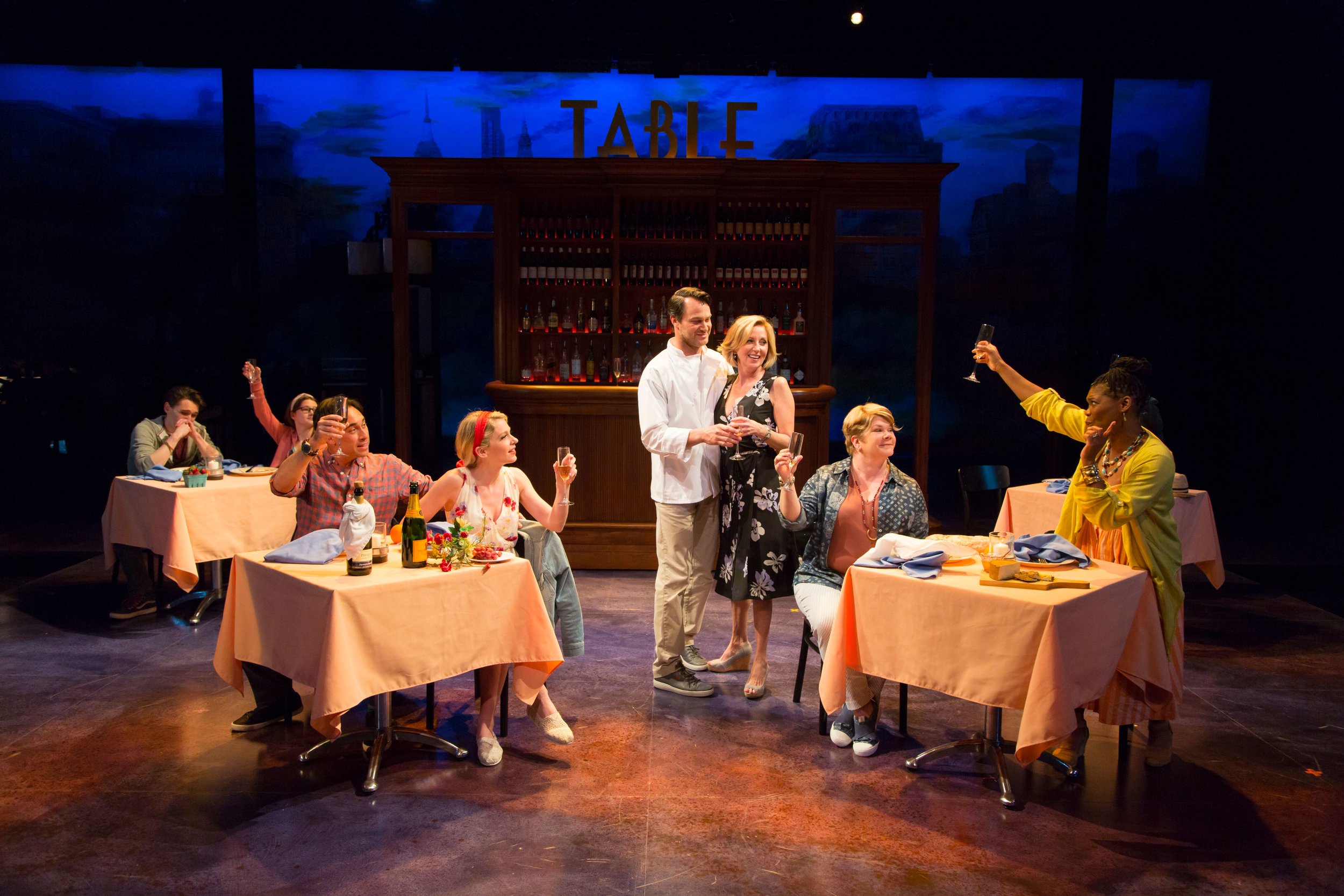Preview, under quarantine
In the poem “Sailing to Byzantium,” W. B. Yeats imagines a golden bird that will sing “to lords and ladies of Byzantium / Of what is past, or passing, or to come.” In these days when the numbers of those contracting the coronavirus and those dying from it are still escalating, there’s a large margin of uncertainty about what is “to come.” And in the midst of so many pronouncements about what is best and what will make things worse, it seems vain, in a sense, to write about the present as anything more than “what is passing.” About “what is past” we can be clear: for theater in CT, any hope of salvaging the remainder of the 2019-20 season is “past.” What’s “passing,” it seems now, are hopes for a return to normality in fall 2020. And to come? Well, for the moment we’ll just content ourselves with what’s available online and what may arrive, in time.
It’s been over a month since I was at a public event. That event, on March 11, was the Long Wharf Theatre’s announcement of its 2020-21 season, covered here by Lucy Gellman at the Arts Paper. On that evening, Long Wharf Artistic Director Jacob Padrón was still optimistic that the theater’s next production of the 2019-20 season, Lloyd Suh’s The Chinese Lady, directed by Ralph B. Peña, would run. Over the next few weeks, as stricter and stricter “shelter in place” directives were given, Broadway theaters shuttered, and restaurants in our area went to take-out and delivery only, the possibilities for theater resuming went from passing to past. Long Wharf cancelled its remaining shows, which included Lauren Yee’s The Great Leap, directed by Madeline Sayet. At Hartford Stage, a fine production of Jane Eyre, directed and adapted by Elizabeth Williamson, closed early, and David Seidler’s The King’s Speech, directed by Michael Wilson, was cancelled. The production of Eugene O’Neill’s Ah, Wilderness!, directed by Artistic Director Maria Bensussen, originally scheduled for May, has been moved to the fall, October 22-November 15, and The Complete History of Comedy (Abridged), written and directed by Reed Martin and Austin Tichenor, originally scheduled for June, will take place October 1-11. Thus the last two shows of the 2019-20 season will run in 2020, followed by the annual production of A Christmas Carol (November 27-December 27). The 2020-21 season will then begin in January. Padrón and Bensussen, the respective Artistic Directors of Long Wharf and Hartford Stage, will be talking with longtime theater critic Frank Rizzo tonight about the current situation and their visions as new ADs at vibrant local theaters in challenging times. Go here, for the virtual edition of A Little Harmless Fun, on the website of the Mark Twain House & Museum, at 7 p.m.
The very day of the Long Wharf gathering, Yale Repertory Theatre announced, after Yale University determined it would not resume classes on campus after spring break (which ran until March 22nd), the premature end of its season, thus canceling a revival of A Raisin in the Sun, directed by Carl Cofield, and Testmatch by Kate Atwell, directed by Margot Bordelon; that announcement also meant that the final appearances onstage by students at the Yale School of Drama for spring 2020 had already occurred.
The last theatrical production I saw—Van Gogh Café at Yale Cabaret—marked the last show that will be held in the venerable basement space this season. The Cabaret, however, is not out of commission entirely. This weekend, April 17 & 18, Ain’t No Dead Thing, an original play written and directed by a.k. payne which was slated as one of the last three shows of the season, will air as a radio play, at 8 p.m. both nights. Information for tuning in can be found here. The Cab has devised its own station—KCAB—where a DJ named darealunluckymadman plays music amidst other events. The play, presented in partnership with FOLKS, is set “against the backdrop of one of the largest race massacres in U.S. history” in the Greenwood district of Tulsa, Oklahoma in 1921. At a diner called Noa’s Ark, folks gather to envision a future for Blacks in America. The Cab’s site describes a radio play as “a dramatized, acoustic performance that allows listeners to imagine the characters and visual elements of a story through dialogue, music, and sound effects. In this moment of constant communication via Zoom, checking the news, and streaming videos, radio plays give us a break from the screen and ask us to focus on language.”
Westport Country Playhouse, which generally runs its season from spring to late fall, announced on Tuesday that it will not mount any productions until 2021. “We hope our audience will understand and support this very emotional and challenging decision,” said Mark Lamos, Playhouse artistic director, in a statement, “but we, like our sister non-profit theaters and arts organizations world-wide, feel that the predicted future is too unknowable at this point.” The first program in the Playhouse’s virtual series airs on Friday, April 17, at 7 p.m.: “Getting to Know You: A Celebration of Young Artists,” with Tony Award-winning Broadway star Kelli O’Hara, on the Playhouse YouTube channel and Facebook Live. Ten Fairfield County high school students will perform a musical theater selection and chat with O’Hara. More Playhouse-generated online events will be announced soon, here.
Just down the road from Westport, in Norwalk, Music Theater of Connecticut has been assessing the situation in order to find a date for its production of The Buddy Holly Story (if his songs don’t brighten your mood, I don’t know what will!). Originally scheduled for March, then postponed until May, the show, according to MTC’s latest announcement—on the 16th—will run from Friday, July 16, to Sunday, August 1. Kevin Connors, MTC’s Executive Artistic Director, in a release from the theater, adds: “MTC remains engaged through our online initiatives including the weekly MTC LIVE! (a new episode premieres on Facebook and at www.musictheatreofct.com/live every Wednesday at noon), our online MasterClass series this month, and our annual gala fundraiser THE MTC VOICE – ONLINE EDITION – coming up on May 9.” For more info about these and other programs, go here.
The Goodspeed Theater in East Haddam announced that its usual season of three musicals (which typically starts around this time) will be reduced to one in 2020: performances for the revival of South Pacific are scheduled to begin on Friday, September 11. The summer production of the new musical Anne of Green Gables will now move to the 2021 season. In the theater’s press release, dated April 9, Goodspeed Executive Director Michael Gennaro said, “It was heartbreaking for us to make the decision to postpone Anne of Green Gables, but it has become clear that we would not have enough time to build and rehearse the show in time for a summer opening. Our producing staff and the creative team both agree that launching a world-premiere musical takes special attention, which may not be possible until we are well past this crisis.”
The health crisis is of course impacting the economy in a drastic manner. Theaters are having to furlough and lay off employees, cancel events—such as fund-raising galas—and are losing important ticket revenues. Contributions are greatly needed and appreciated and are, in most cases, tax deductible.
On April 14, The International Festival of Arts & Ideas, in New Haven, announced its plans for the 25th season’s virtual programming: “We will celebrate our 25th anniversary with a variety of online artistic experiences, virtual food experiences, cell phone-guided walking tours, and various NEA Big Read activities. The virtual Ideas programming centered on the theme ‘Democracy: We the People’ will feature interactive events and conversations with vital thinkers, including 2012 Inaugural Poet Richard Blanco, award-winning scholar Dr. Khalilah L. Brown-Dean, NEA Big Read Author Stephanie Burt, and renowned writer Anand Giridharadas. All programming will be free.”
The statement further reads: “We are committed to the Festival's mission that arts and ideas bring people together and have a positive economic impact on New Haven. Virtual and physically distanced programming will begin online in the coming weeks on a rolling basis. Details will be announced weekly and will be shared on the Festival’s website.”
Here is a link to the International A&I onscreen announcement featuring Liz Fisher & Tom Griggs, Co-Directors of the International Festival of Arts & Ideas
So, tune into as much theater as you can, from wherever you happen to be. Stay safe, and obey your local government’s health protocols as we try to be a public in private spaces.


